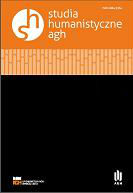WPŁYW EMERYTURY NA SUBIEKTYWNIE ODCZUWANE SAMOPOCZUCIE NA WĘGRZECH
THE EFFECT OF RETIREMENT ON PERCEIVED WELL-BEING IN HUNGARY
Author(s): Márta RadóSubject(s): Social Sciences
Published by: Wydawnictwa AGH
Keywords: retirement; marginal log-linear models; perceived well-being
Summary/Abstract: The effect of retirement on perceived well-being is examined by using three waves of the Hungarian GGS data. The marginal log-linear model, which is a useful, state-of-the art methodological tool for categorical multivariate analysis, is applied to the problem. This paper ascertains that retirement has a significantly negative effect on an individual’s perceived well-being, although after three years of retirement the feeling of well-being starts to increase again. The significant decrease after retirement can be explained by the health and age of the individual, since those in living poor health and retiring at a younger age tend to have lower subjective well-being. Thus retirement and subjective well-being are conditionally independent given health and age. This paper also reveals that the perceived well-being of those who have retired between the first and the second wave is a Markov chain. This means that the perceived well-being measured in the third and the first waves are conditionally independent given the well-being measured in the second wave. The results support the idea that retirement causes a temporary reduction in well-being.
Journal: Studia Humanistyczne AGH
- Issue Year: 13/2014
- Issue No: 4
- Page Range: 145-160
- Page Count: 16

